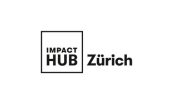
November 2013
Taboobreaker
Developing playful teaching materials to tackle tabood topics
An interview with Karin Stierlin, founder of taboobreaker, a company developing educational games to tackle tabooed topics. After a successful launch in Switzerland, taboobreaker’s product, Love Land, a HIV/Aids prevention game, is now being rolled-out as a pilot case in South Africa, in collaboration with the University Hospital Zurich.
Who are you and what is your company?
My name is Karin Stierlin and my company is called taboobreaker. Our team develops educational games that tackle tabooed topics as HIV/Aids for example. Love Land is our first taboobreaker, and it was created for middle and high school teachers to teach HIV Aids prevention.
The Love Land game consists of a large map that displays six islands, 75 cards with questions and five helicopters with which the student teams can fly to the various islands. Each island stands for a different topic pertaining to HIV Aids prevention. To play the game, the class sits in a circle around the map and splits up into groups.
Which problem does Love Land solve and how will it sustain itself?
Love Land helps to teach HIV Aids prevention more effectively in a classroom setting. One of the major advantages of the game is that the teacher is not at the center of the learning process, but rather takes on the role of a moderator as he or she reads the questions and ensures fair play among the students. In this way, the students feel more at ease and the learning atmosphere is a lot more interactive.
We believe that Love Land will sustain itself, partially because teaching HIV Aids prevention is mandatory in Switzerland. Love Land is a great tool for teachers that don’t have a large knowledge base of the topic.
Why did you start Love Land?
As a sexual health teacher, I was lacking a good prevention tool with which I could connect to a teenager’s experiences. I noticed that when I just lectured them about the topic, they’d get bored and wouldn’t engage much. As a consequence, the HIV/Aids prevention wasn’t very effective and the overall goal of providing a sound education about the topic was not achieved. I realized that I needed a tool that would open up the discussion and focus much more on them.
What has been the biggest challenge so far?
There have been some difficult moments. When I was in the first production phase of Love Land, I’d make hundreds of phone calls, and hear hundreds of times “I can’t help you, your production scale is too low.” Then I’d have days where I didn’t want to see the project anymore. An important lesson I’ve learned since is that one ought to be able to differentiate between a bad project and just a bad day.
How has the HUB contributed to Love Land’s development?
From the beginning the Hub Zürich has been very welcoming, supportive and helpful. On one hand, they provided personal support and connection points to open-minded professionals from whom I received many tips, advice and encouragement. On other hand, they gave me a workspace of which I am very appreciative. It can be quite uninspiring to run the venture from at home.
How can others help you take Love Land to the next level?
We are working right now on a new business plan for Love Land and would need some support for the financial part: In collaboration with a HIV/Aids scientist of University Hospital Zurich, we are busy with a pilot case in Pretoria, South Africa. The development of a distribution system in Switzerland and further European countries is still in working progress as well, since we will need some financial support. This way, we can bring Love Land further into the market, in order to have a truly large impact
I can be reached by email karin.stierlin@taboobreaker.com.
What’s your biggest learning you want to share with the world?
Starting a company is not a job, it’s a passion. You cannot schedule creativity and so your job becomes a lot more integral to your life when you start your own venture. Always stay curious. See every challenge as a gift. For that you need a good support system, and that’s what I found at the Hub.
Interview by: Kate Karius, September 2012
Subscribe to Our Newsletter
Never miss an update – sign up for our newsletter published every 3-4 weeks and stay connected with our community.




